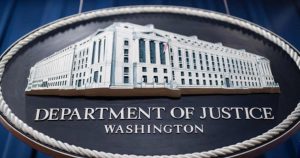Parental rights have emerged as a central battleground in the culture wars, debated in school board meetings, courtrooms and legislative chambers across the country. As conflicts intensify over what children should be taught, how medical decisions should be made and who has the authority to shape their identity, parental rights have taken on heightened significance.
This debate is more than a struggle between parents and the state—it reflects deeper societal anxieties about identity, autonomy and control. Whether it’s school policies, medical decisions or the family’s role in public life, parental rights have become a lens through which broader cultural and political struggles are waged.
Why have parental rights become such a cultural and political flashpoint? What do these debates reveal about shifting power dynamics between families, the state and society? How has this issue become a proxy for larger battles over authority, freedom and the future of societal norms?
Exploring the historical roots, political significance, human meaning and contemporary implications of the parental rights debate reveals how this seemingly private issue mirrors larger societal tensions between individual freedom, state oversight and evolving social values.
The humanities can offer critical insights into the rise of parental rights as a flashpoint in the culture wars and provide values to guide this debate. Let me suggest how:
- Historical context: The humanities reveal how parental rights have evolved, shaped by shifts in family, authority and the state’s role. In ancient times, parental authority was nearly absolute, but by the 19th and 20th centuries, the modern state began intervening in child welfare. This historical perspective explains current tensions between family autonomy and state oversight, driven by changes in social structures like the welfare state and education.
- Philosophical inquiry into authority and autonomy: Moral and political philosophy helps address the tension between parental control, children’s autonomy and state responsibility. This field can provide frameworks for exploring when parental rights should yield to children’s rights or the state’s duty to protect. This philosophical lens allows for deeper, more sophisticated debates on issues such as identity, health care and education.
- Cultural analysis of identity and norms: Cultural studies examine how parental rights intersect with identity and societal values. Issues like school curricula on race and gender reflect larger cultural anxieties. The humanities can help unpack these tensions, offering insight into how public perceptions of parenting, authority and the state shape political and cultural conflicts.
- Ethical frameworks: The humanities offer ethical guidance, balancing parental rights with the best interests of the child. They emphasize pluralism, empathy and dialogue in navigating contentious issues, encouraging solutions that respect diverse perspectives while upholding justice and equality.
- Critical thinking and civic engagement: The humanities foster critical thinking, teaching us to analyze complex issues, consider multiple viewpoints and engage in reasoned debate. This is essential for moving beyond superficial culture wars and fostering informed civic engagement in debates on education, health care and family authority.
Several contemporary literary works explore the tension between parental rights, children’s autonomy and the role of the state, offering thought-provoking perspectives on these issues.
Ashley Audrain’s The Push examines the fraught relationship between a mother and her daughter, raising unsettling questions about parental responsibility, nature versus nurture and the state’s role in protecting children from harmful environments. The portrayal of maternal mental health and a child’s disturbing behavior highlights issues of child protection and parental rights, questioning whether the state should intervene in dysfunctional family dynamics.
Robin Benway’s Far From the Tree explores adoption, biological parenthood and the foster care system, raising questions about the rights of birth parents versus adoptive parents and the state’s role in determining a child’s best interests. Through the lives of three siblings, the novel examines the competing influences of biological family ties and state-structured family systems, revealing the tensions between personal autonomy and state intervention.
Kazuo Ishiguro’s Never Let Me Go explores the rights of individuals—particularly children—within a society that controls their fate for the benefit of others. The children in this dystopian world are raised for organ donation, raising ethical questions about autonomy, state control and the violation of human rights. The story poignantly depicts state authority overriding individual autonomy, with children treated as resources rather than individuals with rights.
Celeste Ng’s Everything I Never Told You examines parental expectations and the pressures parents place on children through the lenses of race, gender and societal norms. The tension between parental control and a child’s autonomy is central to the story, as the parents’ unfulfilled dreams for their daughter ultimately alienate her, with tragic consequences.
In Ng’s Little Fires Everywhere, a custody battle between an affluent white couple and a Chinese immigrant mother explores themes of race, privilege and the rights of biological versus adoptive parents. The novel raises profound questions about who decides what is in a child’s best interest and the state’s role in such decisions.
Ann Patchett’s The Dutch House revolves around the inheritance of a family estate, creating a bitter conflict that pits parental rights, sibling loyalty and children’s autonomy against one another. The novel grapples with how much control parents should have over their children’s future, especially when material wealth is at stake, revealing the tension between parental decisions and children’s right to shape their own lives.
Jodi Picoult’s My Sister’s Keeper addresses parental authority and medical ethics as Anna Fitzgerald sues for medical emancipation after being conceived as a bone marrow donor for her sister, Kate, who has leukemia. The novel explores the conflict between parental rights in making medical decisions and the child’s right to bodily autonomy.
Jill Santopolo’s The Light We Lost depicts a mother’s fight to retain custody of her child amid state intervention due to her lifestyle choices. The story raises critical questions about how much authority the state should have in determining a child’s best interests and when it is appropriate to intervene in private family matters.
Lisa Wingate’s Before We Were Yours, based on a real-life adoption scandal, highlights the state’s complicity in forcibly removing children from poor families and placing them with wealthy ones. The novel underscores the tension between parental rights, children’s autonomy and state intervention, particularly when class and privilege influence the state’s decision-making process.
These works provide valuable insights into the ongoing debates over parental authority, children’s autonomy and the state’s role in deciding what is best for the child. They serve as powerful reflections of contemporary social and legal dilemmas and offer students excellent opportunities to engage with these issues in a thoughtful and nuanced manner.
Historically, parental rights were rooted in the idea that parents should have control over their children’s education and upbringing, shaping their values, beliefs and development. Today, however, this concept has become a flashpoint in broader debates about autonomy, social norms, children’s rights and state power, highlighting the shifting dynamics of authority and freedom in the public sphere.
Conservatives often advocate for parental rights as a way to preserve traditional values, emphasizing that parents should have the final say in decisions about their children’s education, medical treatment and social identity. These advocates argue that parents are best suited to determine what their children learn in school, how they are treated medically and how they are recognized by society.
On the other hand, liberals at times defend parental rights when they clash with state restrictions, such as when states prohibit gender-affirming care or impose rules on dress codes or political expression in schools. In these instances, parental autonomy is framed as a defense against government overreach into personal and familial decisions.
Certain issues also cut across partisan lines, such as when parents oppose vaccine mandates, seek alternatives like homeschooling or advocate for charter schools and school vouchers. These instances demonstrate that the debate over parental rights transcends simple ideological boundaries, touching on deeper concerns about individual choice and state authority.
Ultimately, the modern fight over parental rights reflects a long-standing tension between family autonomy and state intervention. As societal norms around identity, health care and education evolve, the debate over parental rights reveals the complexities of balancing the needs of the child, the authority of the parent and the responsibilities of the state. This tension has made parental rights a defining issue in today’s political and cultural landscape, influencing not only how children are raised but also how society is structured.
The outcome of this debate will have profound implications for the future of education, health care and social policy, shaping how society balances individual freedoms with collective responsibilities. The struggle over parental rights serves as a microcosm of larger societal challenges, making it a pivotal issue in the ongoing evolution of modern governance and cultural norms.
The debate over parental rights reveals significant shifts in the power dynamics between families, the state and society, as well as changing views on authority, autonomy and social norms.
At its core, the issue of parental rights centers on who gets to make critical decisions regarding a child’s upbringing, education and medical care. Historically, parental authority—especially for middle-class parents—was paramount, with families largely insulated from external intervention, particularly by the state. Parents were viewed as the primary custodians of their children’s moral, educational and physical well-being. This emphasis on family privacy often limited public intervention, even in cases of abuse or neglect.
However, the state’s role has evolved, particularly in areas like public education, health-care regulation and child protection laws. Starting as early as the 1830s, several legal doctrines increased the state’s ability to intervene within families:
- Parens patriae is a legal principle granting the state the authority to act as the guardian of individuals who cannot care for themselves, such as minors, the mentally ill or incapacitated individuals. This doctrine, meaning “parent of the country,” allows the state to step in when a child’s welfare is at risk, such as in cases of abuse, neglect or custody disputes. While it justifies state intervention to protect children’s health, safety and education, it also raises tension between family autonomy and state authority.
- The best interests of the child doctrine guides decision-making in child-related cases like custody disputes, adoption and child welfare. This principle prioritizes a child’s well-being, safety and development over the rights of parents or guardians. In determining a child’s best interests, courts typically consider factors such as the child’s emotional and physical well-being, the stability of their living environment, parental capacity to provide care, and the child’s own preferences, especially as they grow older. Judges, along with social workers and child welfare agencies, use these criteria to make decisions that promote the child’s overall welfare.
These doctrines reflect broader societal changes in how we view the state’s role in family matters. The shift from a model of near-total parental control to one where the state has the authority to intervene has been driven by the need to protect children’s rights and welfare. However, it also exposes the ongoing tension between parental autonomy and the state’s duty to protect vulnerable children.
The evolving role of the state in matters of parental rights highlights the delicate balance between protecting children’s welfare and respecting family authority. As societal norms continue to shift, so too will the boundaries between parental rights and state intervention, making this an enduring and complex issue in legal and cultural debates.
In the late 19th and much of the 20th century, the idea that the state had both the right and duty to intervene in children’s lives to protect their best interests was often applied selectively, disproportionately targeting marginalized and impoverished families. These interventions reflected broader societal prejudices about poverty, class and race and often extended beyond cases of extreme abuse or exploitation to situations of neglect—neglect that frequently resulted from the pressures on single parents or low-income families to work.
Families in poverty faced heightened scrutiny from the state, as poverty itself was often equated with neglect. Children from poor families were regularly removed from their homes under the assumption that their parents could not adequately meet their material needs. Wealthier families, by contrast, were largely spared such interference, while poor, urban families were subjected to visits from social workers and child protection services, who monitored their living conditions.
These families were seen as morally deficient, prone to vice and incapable of instilling proper values in their children, according to middle-class reformers. Their child-rearing practices were often deemed inadequate, not based on actual harm but on the biases of those overseeing them.
While state interventions were intended to protect children’s welfare, they frequently resulted in the disruption of families, severing the bonds between parents and children. For many poor families, the threat of losing their children loomed, not due to abuse or neglect but because of their financial struggles.
The state’s duty to protect children’s best interests also intersected with racial inequalities. Indigenous and African American families were especially vulnerable to intervention, as white authorities often deemed their cultural practices and parenting styles as inferior or harmful. Black children were disproportionately placed in foster care or removed from their families, reinforcing racial inequality. Indigenous children were forcibly taken from their families, placed in boarding schools or adopted by white families under the pretext of protecting their welfare, with the goal of erasing Indigenous identities through assimilation.
While many of these interventions were motivated by genuine concern for child welfare, they were also deeply influenced by classist, racist and moralistic attitudes that viewed poverty and cultural differences as threats to children’s well-being. As a result, state intervention often reinforced social inequalities by punishing families for their economic status rather than addressing the root causes of poverty.
This historical context illuminates the ongoing tensions between the state, family autonomy and social inequality in child welfare today. The legacy of these selective interventions continues to shape modern debates about the role of the state in protecting children and the impact on marginalized communities.
The contemporary battle over parental rights stems from the increasing involvement of state institutions in areas once considered the sole domain of the family, such as school curricula, health-care decisions (especially around vaccines and gender-affirming care), and the balance between children’s autonomy and parental authority. The state often frames these interventions as efforts to promote the public good, protect children’s welfare or enforce social standards, but they can clash with individual parental preferences.
This conflict has turned parental rights into a proxy for larger societal debates about authority and freedom. Conservatives, in particular, push back against what they see as government overreach, advocating for greater parental control over education—especially regarding how schools address race, gender and sexuality. They argue that such state involvement undermines the family’s role in shaping children’s values. On the other hand, progressives contend that the state has a duty to protect children from harmful ideologies or practices, such as religiously motivated science denial, intolerance of gender diversity or a lack of comprehensive sex education.
Parental rights also tap into broader questions of individual autonomy, especially concerning children’s identity and health care. Debates over whether parents should be informed if a child requests a different gender identity at school or whether they should have the final say in health-care decisions for transgender children highlight tensions between children’s emerging autonomy and parental control. In these cases, parental rights are weighed against the belief that children have independent rights, particularly concerning their identity and well-being.
This debate reflects shifting societal norms around family structures and authority. As traditional family models evolve to include single-parent households, same-sex parents and cohabiting families, the definition of parental rights is being reconsidered. These shifts complicate long-held assumptions about family authority and the state’s role in regulating or supporting diverse family forms.
The politicization of parental rights reveals broader anxieties about control and autonomy in a rapidly changing society. For conservatives, defending parental rights often serves as a defense of traditional values, viewing the family as a safeguard against progressive cultural changes. For liberals, advocating for state intervention or children’s autonomy is framed as advancing social justice and protecting vulnerable populations from harmful practices.
In a diverse, politically divided society, addressing the issue of parental rights requires carefully balancing family autonomy, children’s well-being and societal values like equality and justice. Because parental rights touch on deeply personal matters such as education, health care and identity, navigating this debate demands a thoughtful approach that accounts for differing worldviews, cultural values and ethical considerations.
To best address parental rights, society should adhere to certain moral and ethical principles:
- The best interests of the child: The child’s well-being must be at the heart of any discussion on parental rights. While parents play a crucial role, their authority is not absolute. Decisions around education, health care and identity should prioritize the child’s physical, emotional and psychological welfare. This principle, widely accepted in legal and ethical frameworks, underscores the understanding that children deserve protection, care and the opportunity to thrive. In health care, for example, choices such as vaccinations or gender-affirming care should center on the child’s long-term health, rather than parental ideologies.
- Respect for parental autonomy: Parents are central in shaping their children’s values and upbringing, and their autonomy should be respected within reasonable limits. Families vary in their cultural, religious and philosophical beliefs, and a pluralistic society must allow room for those differences. However, this respect must be tempered by recognizing that children are not the property of their parents—they are individuals with rights. As children grow, their autonomy, especially regarding identity and health care, must be increasingly respected.
- Balance between individual rights and state responsibilities: The tension between family authority and the state’s role in protecting children is a key challenge. The state has a legitimate interest in safeguarding children from harm and ensuring access to quality education and health care. State intervention is justified when parental decisions put a child’s well-being at risk. However, in areas like educational curricula, the state’s role is more nuanced, needing to balance parental preferences with society’s responsibility to provide a broad-based education that fosters critical thinking and prepares children for a diverse world.
- Protection of children’s emerging autonomy: As children mature, their ability to make decisions grows. The debate over parental rights often involves how much autonomy children should be granted, particularly in personal matters such as gender identity or health care. Ethical considerations demand that as children approach adolescence, their voices and autonomy be increasingly respected, especially in cases where parental rejection could cause harm.
- Commitment to pluralism and mutual respect: A diverse society must allow families to raise their children according to their cultural and moral values, as long as these do not violate basic human rights or endanger the child. In a politically divided environment, dialogue and mutual respect are essential. The goal should not be to impose a uniform set of values but to find common ground in safeguarding children’s well-being while respecting diversity in parenting styles.
- Ensuring equality and justice: The debate over parental rights must be informed by a commitment to equality and justice. Marginalized families often face greater scrutiny and state intervention than more privileged families. Policies must ensure that all families are treated fairly and that vulnerable populations are not disproportionately targeted or penalized. This is crucial in areas like education, where equal access to resources must be guaranteed regardless of a family’s background.
- Transparent decision-making and public accountability: When the state intervenes in parental matters, transparency and accountability are critical. Parents and communities need clear information about why decisions are being made, how rights are being balanced and how they can engage with or challenge these processes. This is especially important in contentious areas like child protection services and educational policies.
Grounding the debate in these principles—pluralism, justice and mutual respect—will allow society to navigate these complex tensions and create a framework for parental rights that promotes both family autonomy and children’s well-being in an increasingly diverse world.
The debate over parental rights is not just about the authority of parents—it’s a broader struggle over the future of societal norms, values, children’s autonomy and the balance of power between families and the state. This issue cuts to the core of how we understand freedom, responsibility and the rights of children, revealing deep cultural and political divides.
The stakes are high. On one side is the preservation of parental authority and family autonomy, rooted in the belief that parents should have primary control over their children’s upbringing, education and health care. On the other side is the state’s responsibility to protect and empower children, ensuring their rights and well-being, especially when parental choices may conflict with broader social values or the child’s best interests.
In a pluralistic society, navigating these conflicts requires a careful balancing act. Respecting family autonomy is crucial, but so are children’s rights and the state’s role in upholding justice, equality and the well-being of all citizens, particularly the most vulnerable. How we resolve this debate will shape not only the future of parental rights but also the evolving relationship between family authority, child autonomy and the state’s role in safeguarding the interests of its youngest members. This conversation will ultimately define how we balance personal freedoms with collective responsibilities in the fabric of modern society.
Steven Mintz is professor of history at the University of Texas at Austin and the author, most recently, of The Learning-Centered University: Making College a More Developmental, Transformational and Equitable Experience.








